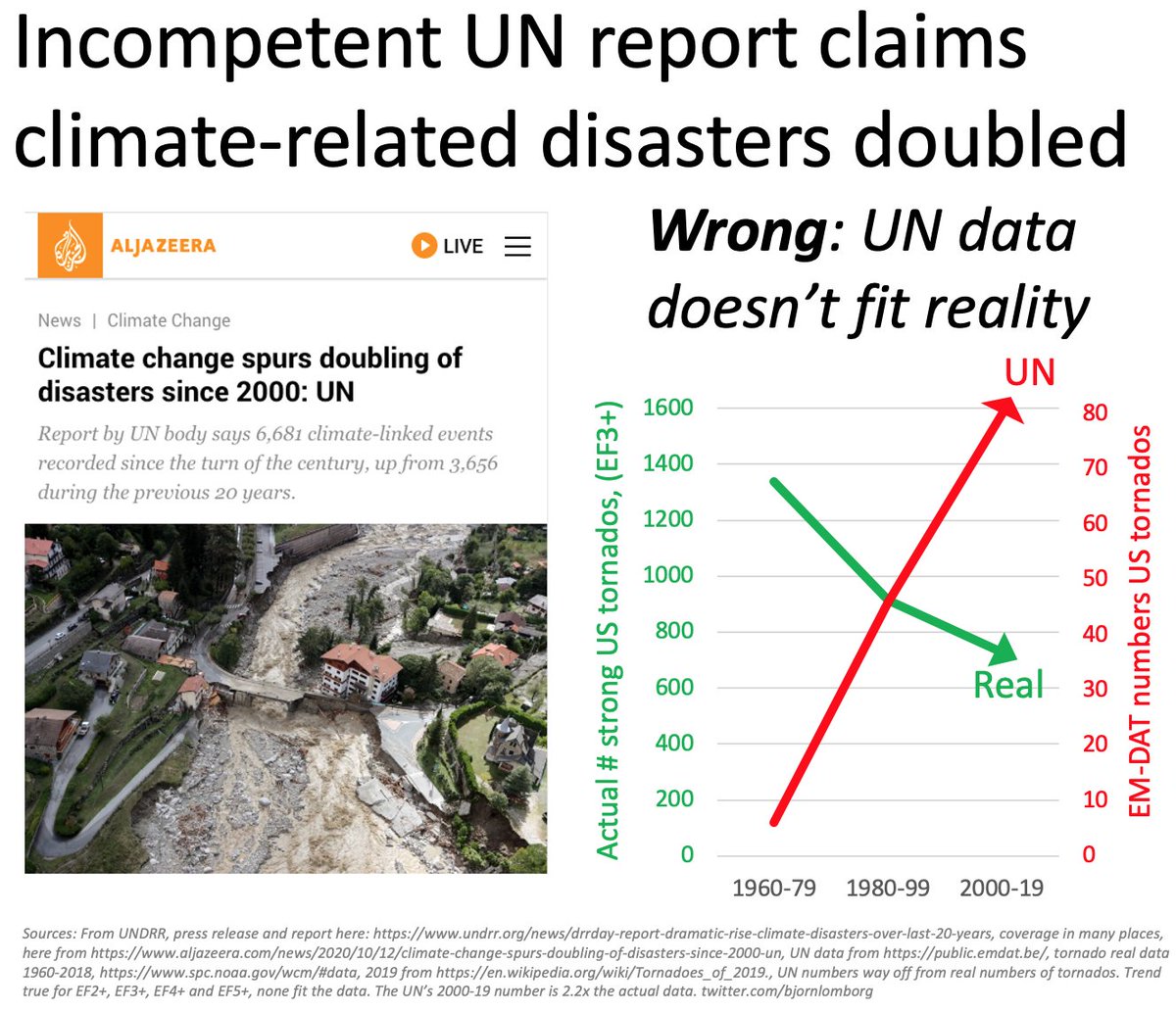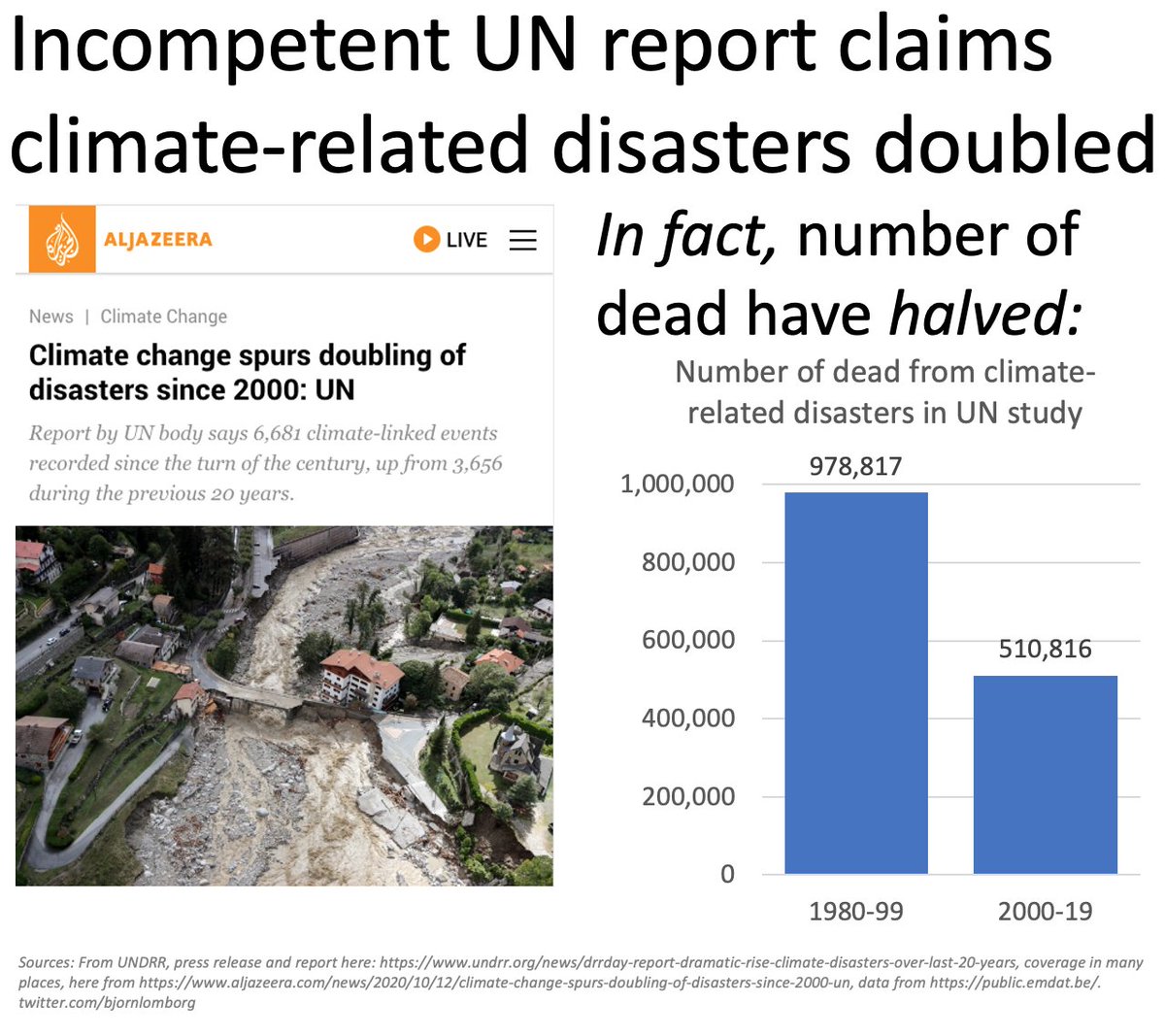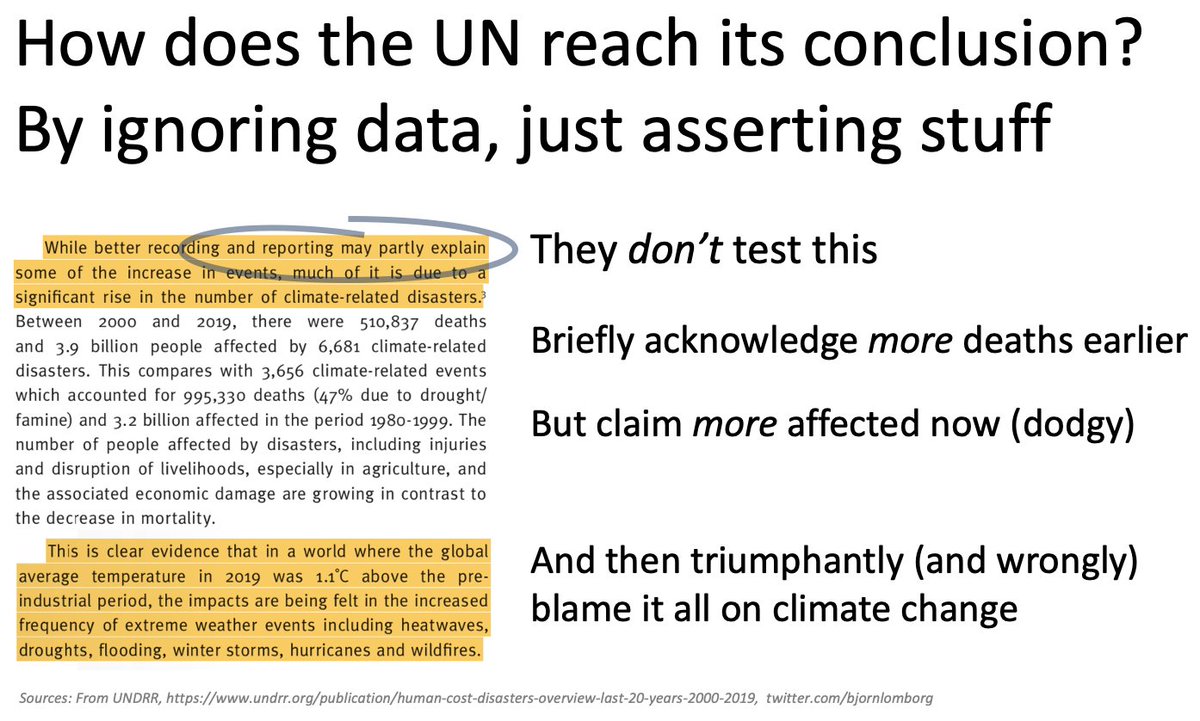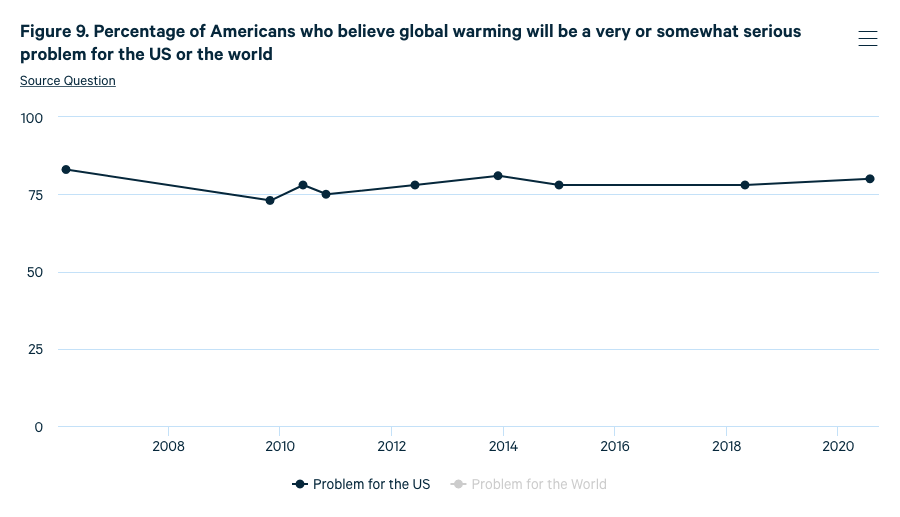
Great we're again discussing the real and manmade problem of climate
But let's get the facts straight
Hurricanes are not increasing in frequency
The best way to help Central America is not climate policy but lifting them out of poverty
journals.ametsoc.org/bams/article/9…
But let's get the facts straight
Hurricanes are not increasing in frequency
The best way to help Central America is not climate policy but lifting them out of poverty
journals.ametsoc.org/bams/article/9…

Best long-term data is US landfalling hurricanes, because reliably recorded since 1900
Frequency of all hurricanes *not* increasing
Frequency of strongest hurricanes (Cat3+) *not* increasing
journals.ametsoc.org/bams/article/9…
Frequency of all hurricanes *not* increasing
Frequency of strongest hurricanes (Cat3+) *not* increasing
journals.ametsoc.org/bams/article/9…

Just using storm frequency across entire Atlantic has two problems:
1) Earlier years, especially after opening of Panama Canal, many storms missed
Here observations of the two strongest hurricane years 1933 and 2005
agupubs.onlinelibrary.wiley.com/doi/pdf/10.102…
1) Earlier years, especially after opening of Panama Canal, many storms missed
Here observations of the two strongest hurricane years 1933 and 2005
agupubs.onlinelibrary.wiley.com/doi/pdf/10.102…

Thus, you need to readjust for missing hurricane numbers in early years
nhc.noaa.gov/pdf/landsea-et…
nhc.noaa.gov/pdf/landsea-et…

Just using storm frequency across entire Atlantic has two problems:
2) Satellite data starts around 1970, when Atlantic hurricanes are in a lull. Only looking from 1970s will incorrectly give an impression of an increase
journals.ametsoc.org/bams/article/9…
2) Satellite data starts around 1970, when Atlantic hurricanes are in a lull. Only looking from 1970s will incorrectly give an impression of an increase
journals.ametsoc.org/bams/article/9…

Yes, 2020 Atlantic hurricane season very powerful
But Accumulated Cyclone Energy (the integrated metric of frequency, intensity+duration):
2020 only 14th-strongest
1933 — almost a century ago — still strongest, followed by 2005, 2017, 1893 and 1926
journals.ametsoc.org/bams/article/d…
But Accumulated Cyclone Energy (the integrated metric of frequency, intensity+duration):
2020 only 14th-strongest
1933 — almost a century ago — still strongest, followed by 2005, 2017, 1893 and 1926
journals.ametsoc.org/bams/article/d…
Don't just look for strong hurricanes and say 'see, climate makes them worse!'
We have to look across the world:
Yes, 2020 worse in Atlantic+NIndian
But 2020 much better in W, E and Central Pacific
In total, 2020 is *less* strong at 76% of normal year
climatlas.com/tropical/
We have to look across the world:
Yes, 2020 worse in Atlantic+NIndian
But 2020 much better in W, E and Central Pacific
In total, 2020 is *less* strong at 76% of normal year
climatlas.com/tropical/

In future, climate will likely make hurricanes
*fewer* but *stronger*
Fewer is better, but stronger is worse, meaning overall damages will increase (this is why climate is a problem)
Here from UN Climate Panel latest 2018 report, p178
ipcc.ch/sr15/
*fewer* but *stronger*
Fewer is better, but stronger is worse, meaning overall damages will increase (this is why climate is a problem)
Here from UN Climate Panel latest 2018 report, p178
ipcc.ch/sr15/

But richer also means more resilience against catastrophes — when hurricane Mitch hit poorer Honduras in 1998, it killed 7,000 and cost 70% of their GDP; when hurricanes hit Flordia, it kills few people and cost a fraction of a percent of Flordia GDP
repositorio.cepal.org/handle/11362/2…
repositorio.cepal.org/handle/11362/2…
That is why climate-related damages are declining, not increasing, as the world is getting richer
Update of sciencedirect.com/science/articl… from doi.org/10.1080/174778…
Update of sciencedirect.com/science/articl… from doi.org/10.1080/174778…

The UN estimate especially the developing world will get better off during the 21st century, with inequality declining dramatically in the UN's middle-of-the-road scenario (SSP2)
sciencedirect.com/science/articl…
sciencedirect.com/science/articl…

Hurricane damages are about 0.04% of GDP now
With no climate change, increasing prosperity reduces hurricane damage to 0.01% of GDP in 2100
With climate change, prosperity reduces damages to 0.02% of GDP
Damages will at least *halve* from .04% to .02%
nature.com/articles/nclim…
With no climate change, increasing prosperity reduces hurricane damage to 0.01% of GDP in 2100
With climate change, prosperity reduces damages to 0.02% of GDP
Damages will at least *halve* from .04% to .02%
nature.com/articles/nclim…
Biden's most ambitious climate policy will cost trillions yet reduce temperatures by just about 0.1°C (0.2°F) by 2100 (linkedin.com/posts/the-econ…)
It will help Central America almost nothing
But bringing prosperity can increase resilience, lower vulnerability and drive development
It will help Central America almost nothing
But bringing prosperity can increase resilience, lower vulnerability and drive development
Social and economic policies are typically much more effective than climate policies — for some interventions, a dollar spent on reducing vulnerability can help 52 times more than one spent on climate policy
royalsocietypublishing.org/doi/10.1098/rs…
royalsocietypublishing.org/doi/10.1098/rs…
Great to want to help
But help effectively:
Poor Nicaraguans are struggling with mudslides and flooding
Suggesting helping them by putting up solar panels in the US is spectacularly ineffective
Help them with prosperity and resilience, eg free trade
bostonglobe.com/opinion/2017/0…
But help effectively:
Poor Nicaraguans are struggling with mudslides and flooding
Suggesting helping them by putting up solar panels in the US is spectacularly ineffective
Help them with prosperity and resilience, eg free trade
bostonglobe.com/opinion/2017/0…
• • •
Missing some Tweet in this thread? You can try to
force a refresh

















